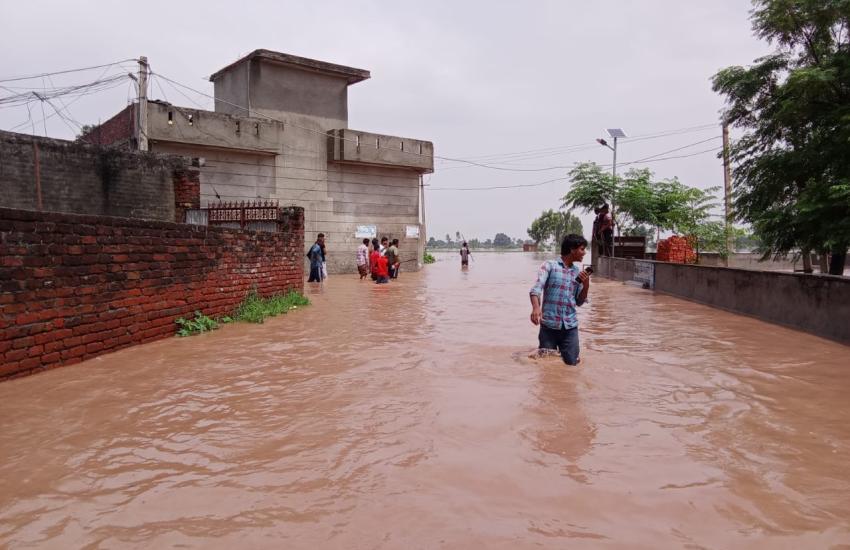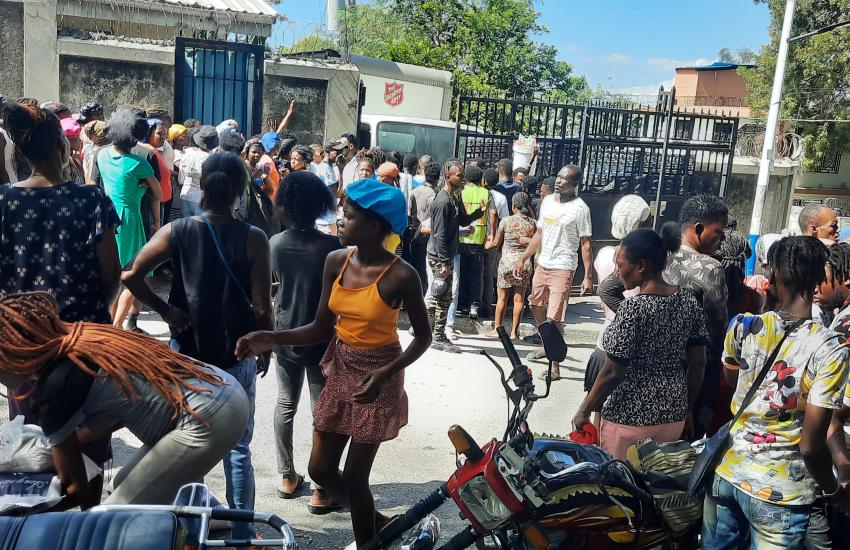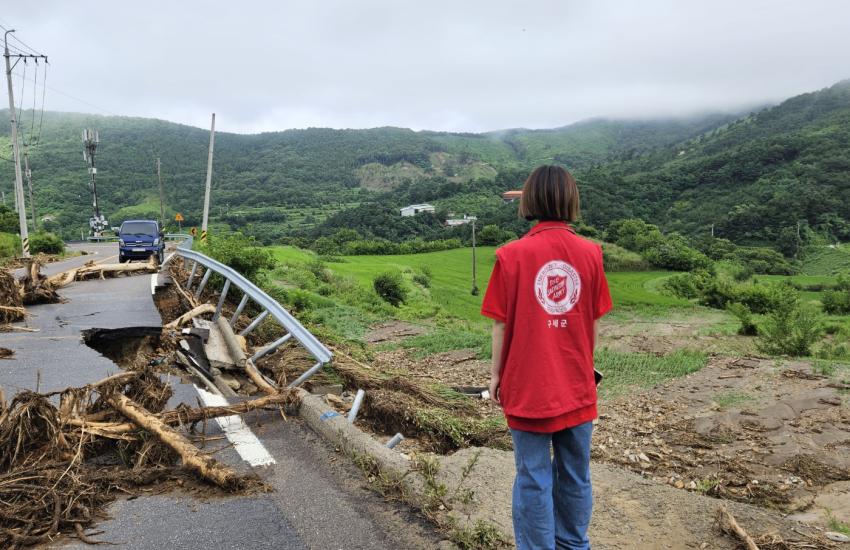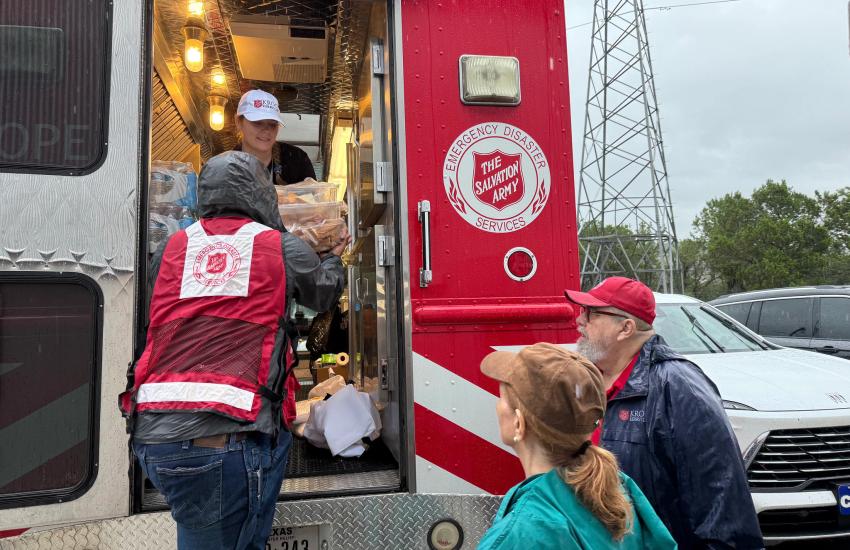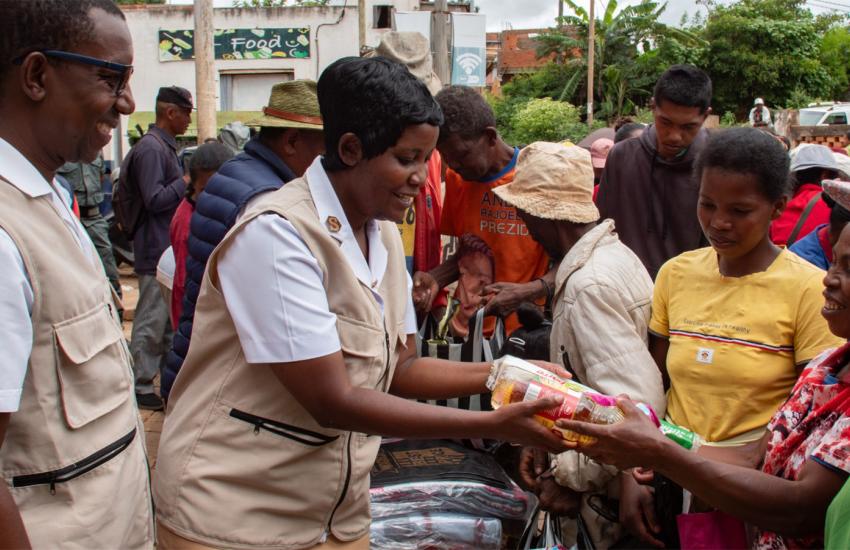Storm Boris has unleashed massive flooding across Central and Eastern Europe, affecting Romania, the Czech Republic, Austria, Poland, Slovakia, Hungary and Germany. Thousands have been evacuated and the death toll has risen to 19. Despite this, the affected communities have shown remarkable resilience.
The Salvation Army in various locations is responding by distributing food, providing refuge in temporary shelters, and actively participating in the cleaning up and restoring of damaged properties, such as homes and community centres.
Czech Republic: Severe Flooding in North Moravia
The Salvation Army has been active in the Czech Republic since 1989, operating in 17 cities. Recent floods have severely impacted North Moravia. Despite opening centres 24/7 to assist those in need, many of their facilities, including social service centres and regional headquarters, were submerged and had to be evacuated. Centres and corps in six cities were affected.
In Krnov, 75 clients from a social centre for homeless people were evacuated to two different schools after being immersed under two metres of water. Emergency food deliveries from Ostrava continue. All employees in Krnov have been affected, as 80% of the city was flooded and destroyed.
In Opava, nearly two metres of water affected shelters for mothers, children and men, and damaged the community centre’s basement. In Bohumín, a building where social housing services are provided was flooded, while in Šumperk, 15 clients with limited mobility were relocated to a hospital, not knowing whether the floodwaters would reach their residence.
Ostrava’s Adelante hostel remains safe and is providing help to victims, but low-threshold services in Přívoz have been impacted, with staff working remotely. Ostrava’s teams also offer daily support serving food.
Salvation Army teams from Prague and Karlovy Vary are already on their way to help with the relief work. Staff and volunteers from across the country are also travelling to the affected areas with shovels, brooms and other clear-up materials to support the efforts on the ground.
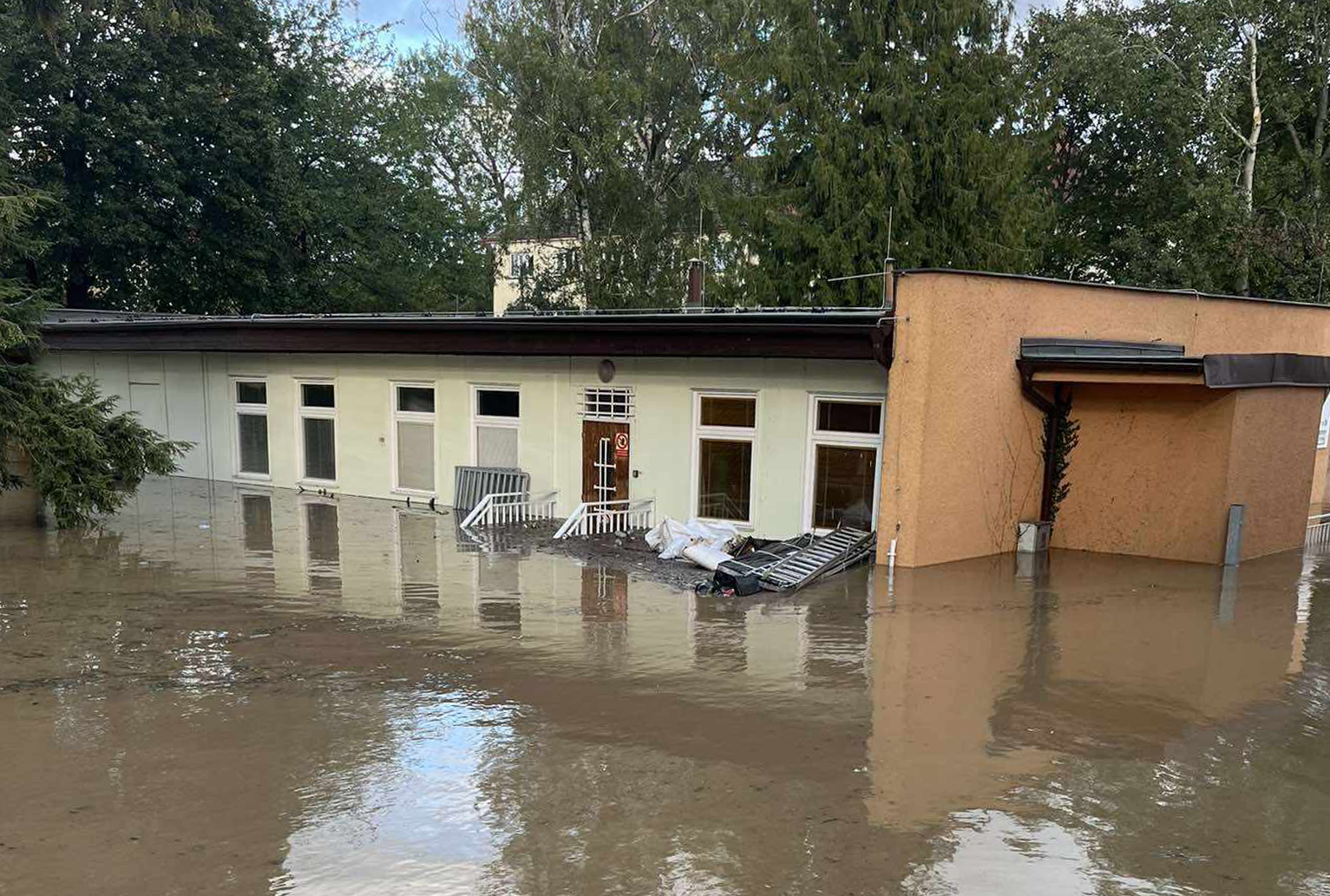
Romania: Rapid Response to Flood Victims
In Romania, more than 5,000 homes were affected by the floods, and hundreds of residents from 22 towns were forced to evacuate. The Salvation Army quickly responded, with Divisional Commander Major Ionut Sandu leading a relief effort to the flooded region of Galați.
Teams from Bacău and Ploiești joined the divisional commander to deliver essential supplies. Major Sandu reports: ‘On Monday 16 September, we served approximately 250 people and have been asked by the government to provide meals, drinking water, tea and coffee over the coming days. The numbers are expected to increase over the next few days until the power is restored and people can return to their homes.’ Volunteers have also begun cleaning and restoring damaged properties, with much work still ahead.
Poland: Adjusting Services to Meet the Crisis
In Poland, The Salvation Army is closely monitoring the flood situation, adjusting services to provide emergency shelter and support to people experiencing homelessness and others affected by the disaster. With some staff members directly impacted by the flooding, efforts are being made to maintain services while dealing with staffing shortages.
Pavla Lydholm, Head of Fundraising and Marketing in the Denmark and Greenland Territory, says, ‘These floods are worse than the 1997 Central European flood.’ But across the region, The Salvation Army continues its vital work, offering hope and relief to those devastated by Storm Boris. Recovery efforts are ongoing, and the Army’s support is crucial.
Damaris Frick, Director of International Emergency Services, confirms: ‘Many people across Central Europe are impacted by these recent floods. Like other parts of the world, these extreme events are becoming more frequent due to climate change, which is very worrying. The Salvation Army is in several affected countries, and works with municipalities and other partners to meet immediate needs and assist the recovery. We also see the global Salvation Army’s role in promoting and supporting climate change preparedness and mitigation measures.’

